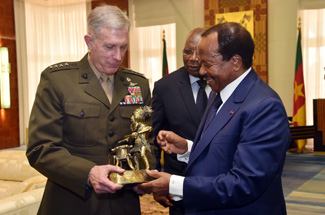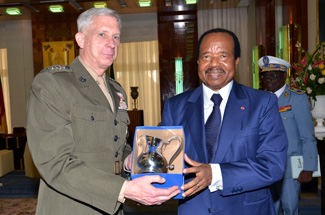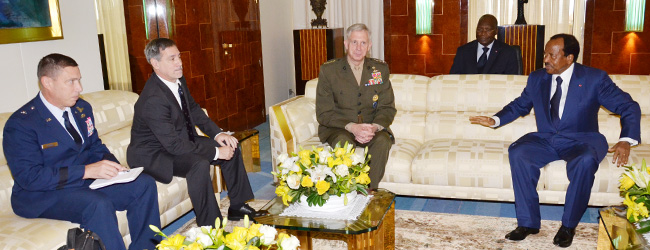2, November 2016
Kenya to withdraw from UN South Sudan peacekeeping mission 0
Kenya says it will withdraw from the United Nations peacekeeping mission in South Sudan after UN Secretary General Ban Ki-moon dismissed the Kenyan commander of the mission over its failure to protect civilians. The Kenyan Foreign Ministry said in a statement on Wednesday that the country would “withdraw, immediately” its forces from South Sudan in reaction to Ban’s decision.
On Tuesday, the UN secretary general dismissed and called for the immediate replacement of Lieutenant General Johnson Mogoa Kimani Ondieki in reaction to a damning report that showed the failure of the mission to protect civilians and the UN staff during the deadly violence that erupted in the capital Juba in July.
The ministry said it had been informed “with dismay” of Ban’s decision, adding, “The continued deployment of (Kenya’s) troops in South Sudan is no longer tenable and is inimical to their safety and well-being.” It also accused the UN of failing to address the shortcomings of the peacekeeping mission, known as UNMISS. An independent UN inquiry released on Tuesday found that UNMISS had failed to respond to repeated pleas for help from aid workers under attack just a few minutes’ drive away.

According to the summary of the report, General Ondieki lacked the proper leadership of the mission that “culminated in a chaotic and ineffective response to the violence.” Kenya rebuked the dismissal as lacking transparency and consultation.
“This action is not only wrong but also insulates the Department of Peacekeeping Operations (DPKO) from the hard questions it needs to answer, and the responsibility it must shoulder to facilitate the proper management of UNMISS,” the Kenyan Foreign Ministry said.
Kenya contributed about 1,000 troops to UNMISS, which is composed of nearly 16,000 soldiers. The ministry added that Kenya would also “discontinue plans to contribute to the Regional Protection Force, and … disengage from the South Sudan peace process.”
South Sudan gained independence in July 2011, but descended into war in December 2013, after President Salva Kiir accused the former vice president, Riek Machar, of plotting a coup to usurp power. Numerous international attempts to reach a truce between the warring sides have failed.
Presstv


 It was a get to know each other audience with the new Africom Commander, U.S. Marine Corps General Thomas D. WALDHAUSER, who assumed duties in July 2016. This was in company of the U.S. Ambassador to Cameroon, Michael Stephen HOZA.
It was a get to know each other audience with the new Africom Commander, U.S. Marine Corps General Thomas D. WALDHAUSER, who assumed duties in July 2016. This was in company of the U.S. Ambassador to Cameroon, Michael Stephen HOZA. Meanwhile, Ambassador Michael Stephen HOZA, revealed some of the matters of utmost concern, such as the fight against terrorism, the ongoing conflict in the Central African Republic and maritime security in the Gulf of Guinea. The Americans will continue to stand by Cameroon, especially with the training of Cameroonian military staff and the supply of high end equipment.
Meanwhile, Ambassador Michael Stephen HOZA, revealed some of the matters of utmost concern, such as the fight against terrorism, the ongoing conflict in the Central African Republic and maritime security in the Gulf of Guinea. The Americans will continue to stand by Cameroon, especially with the training of Cameroonian military staff and the supply of high end equipment.


 Cameroon’s first lady Chantal Biya, will be named as the Mother Teresa of Cameroon soon. The wife of the 83 year old president was the focus of an academic discourse that recently brought together some pro CPDM university lecturers of the University of Yaounde II.
Cameroon’s first lady Chantal Biya, will be named as the Mother Teresa of Cameroon soon. The wife of the 83 year old president was the focus of an academic discourse that recently brought together some pro CPDM university lecturers of the University of Yaounde II.





















3, November 2016
EU: Irish Prime Minister warns of a vicious approach in negotiations over Brexit 0
Irish Prime Minister Enda Kenny has warned of a “vicious” approach by the EU in negotiations over Britain’s exit from the bloc. Speaking among politicians, business leaders, trade unionists and community organizations in the capital Dublin on Wednesday, the premier further assured the nation that Brexit would not limit movement between the Irish Republic and Northern Ireland by setting a “hard border.”
He said he had been assured by British Prime Minister Theresa May that there would be “no return to the borders of the past” after Brexit. The prime minister also urged leaders of the European Union not to be “obsessed” with the UK’s gains and losses in Brexit negotiations, asserting that “The other side of this argument may well get quite vicious after a while, because there are those around the European table who take a very poor view of the fact that Britain decided to leave.”
Ireland’s foreign minister, Charlie Flanagan, who also attended the Dublin conference along with all leaders of the nationalist political parties on the island, said London was being pushed over maintaining the “invisible” border after Brexit.
“It is vitally important in the context of the [Brexit] negotiations next year that the matter of the invisibility of the border between Northern Ireland and Ireland is not only featured but is both preserved and maintained,” Flanagan said. On June 23, nearly 52 percent of Britons voted in a referendum to end their country’s 42-year membership in the EU. Nearly 56 percent of the voters in Northern Ireland voted in favor of remaining an EU member.
Presstv